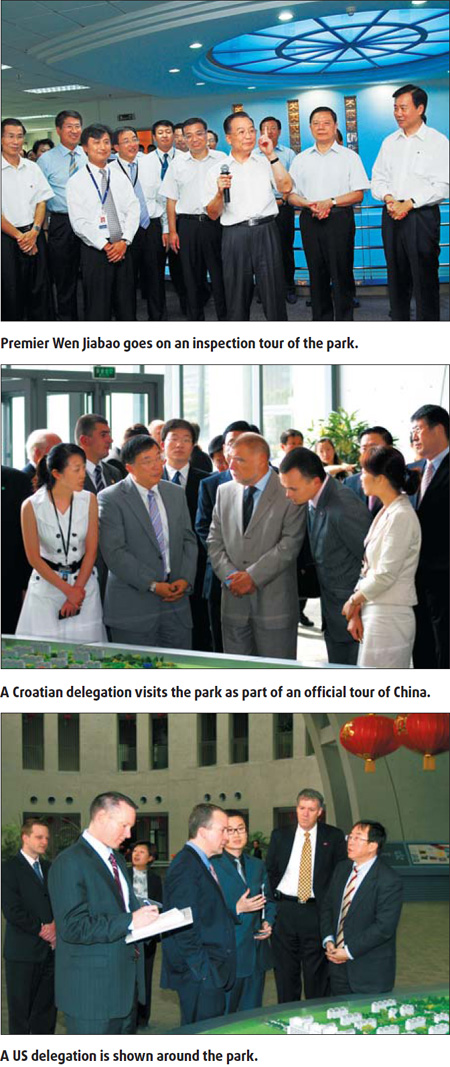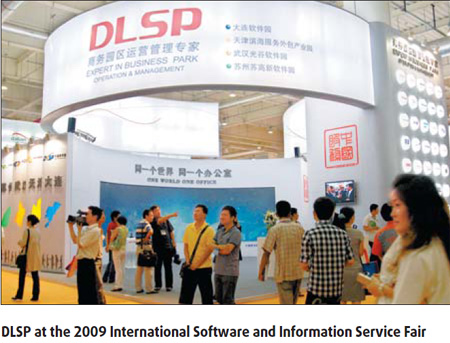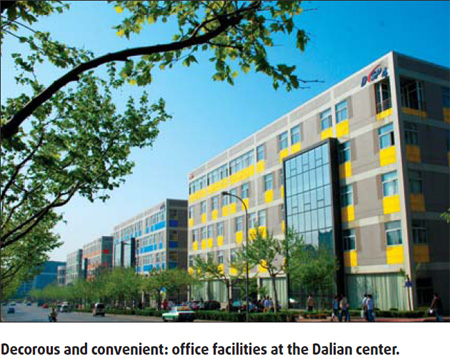Outliving the competition key to surviving in the economic downturn

It is almost a clich now when companies maintain they are viewing the financial crisis "more as an opportunity than as a serious challenge," but when it is said by Gao Wei, the president of the Dalian Software Park Co (DLSP), it has more than the usual air of conviction.
Reflecting on the current downturn, Gao says: "Our business is growing at a considerable pace, even with the chill of the economic slowdown."
His confidence is perhaps justified, given that the DLSP's revenue rose by 10 percent in the first quarter of this year, whilst the value of the park's software exports reached $650 million in 2008, up 35.4 percent on 2007.
Explaining the DLSP's continuing success, Gao says: " The global economic decline has been forcing many software companies in the West, as well as those in Japan and South Korea, to bring forward their outsourcing plans. Fortunately, they have come knocking at our door."
In 2008, a number of Fortune 500 companies, including the Japanese IT firm NS Solutions, the American tech giant Cisco and the insurance provider Sompo Japan, established their R&D and customer support centers in the Lioaning-based park. Some 40 software companies, including Aspect, followed suit and set up software and information service outlets.
Gao attributed the park's continuing success to the company's business model. Rather than operating as a strictly State-owned business, DLSP is managed as a "government-facilitated, privately run enterprise".
In line with this dual status, the Dalian government has backed the park with a series of preferential policies, including tax breaks and international bidding support. It also streamlined the planning approval process when the development of the park was first mooted.

Spurred by the development of the park, the city's IT sector has enjoyed a concurrent growth over the last 11 years. According to Li Wancai, Dalian's acting mayor, the city's prime geographic location - well poised for access to both Japan and South Korea - as well as its ready supply of well-educated software professionals, have made the city increasingly attractive to outsource-minded companies.
Both Li and Gao are clear as to the mutual benefits provided by the software park and its symbiotic relationship with the city. Whilst Li says: "Dalian aims to be a leading city in global software outsourcing industry," Gao agrees, adding: "The DLSP will without a doubt play a crucial role in the city achieving this goal.'
In a sign of how important the software park is to Dalian, employees at the park accounted for just over 46 percent of the city's total software professionals' personal income tax revenue last year, according to Gao. The DLSP has also taken the lead in investing in software education and training in the city.
As well as its responsibilities to the city, the DLSP is also very attentive to the needs of the businesses based within its confines, as Gao says: "We like to see ourselves as more than just a landlord."
As well as simply providing the premises for businesses to operate from, the park also provides its clients with a range of additional services, including staff recruitment and training, assistance in navigating local and national regulations and advice on investment and business solutions. The park is also the setting for an annual software and information service outsourcing conference, aimed at ensuring its tenants stay abreast of the latest industry developments and trends.
In its dealings with Cisco, for example, the park's management provided office premises and assisted in the recruitment of employees. This saved the company both time and money when the IT giant formally launched its Global Senior Service Support Center last October.
With many of the DLSP's tenants affected by the economic downturn - 88 percent, according to one particularly pessimistic survey - its management team is considering innovative approaches to supporting those most badly hit. To this end it has offered to slash air-conditioning costs and provide cut-price office furniture. Through these initiatives - and several similar gestures - the DLSP is seeking to boost "at risk" businesses and provide them with space for new developments.
Established in 1998 on a patch of unwanted wasteland in Dalian's western suburbs, the park has now been transformed into a sprawling business community that is home to nearly 600 companies. The park has now secured long-term contract with companies such as Intel, IBM and HP, to name just three of the 40 Fortune 500 firms that are now based there.
As the software park continues to growth, it has begun to expand its interests beyond Dalian. The DLSP is now operating business parks in Wuhan, Suzhou and Tianjin, and representation offices in Beijing, Shanghai and Japan.
Returning to his opening theme, Gao says: "So downturns are not necessarily a bad thing. The 'fittest' firms have the chance to prove their resilience - largely by outliving their competition."


(China Daily 09/10/2009 page56)














